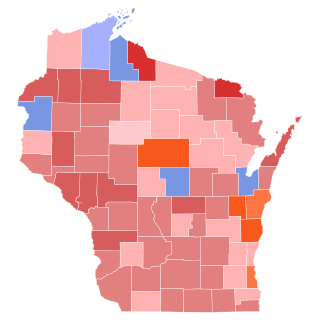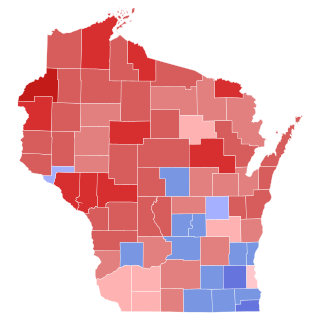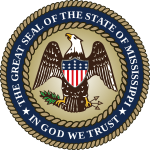
The 1959 Mississippi gubernatorial election took place on November 3, 1959, in order to elect the Governor of Mississippi. Incumbent Democrat James P. Coleman was term-limited, and could not run for reelection to a second term. As was common at the time, the Democratic candidate ran unopposed in the general election; therefore, the Democratic primary was the real contest, and winning the primary was considered tantamount to election.

The 1931 Mississippi gubernatorial election took place on November 3, 1931, in order to elect the Governor of Mississippi. Incumbent Democrat Theodore G. Bilbo was term-limited, and could not run for reelection to a second term. As was common at the time, the Democratic candidate ran unopposed in the general election, so therefore the Democratic primary was the real contest, and winning the primary was considered tantamount to election.

The 1927 Mississippi gubernatorial election took place on November 8, 1927, in order to elect the Governor of Mississippi. Incumbent Democrat Dennis Murphree, as he had not served a full term, was eligible for and ran for election. As was common at the time, the Democratic candidate ran unopposed in the general election; therefore the Democratic primary was the real contest, and winning the primary was considered tantamount to election.

The 1923 Mississippi gubernatorial election took place on November 6, 1923, in order to elect the Governor of Mississippi. Incumbent Democrat Lee M. Russell was term-limited, and could not run for reelection to a second term. As was common at the time, the Democratic candidate ran unopposed in the general election so therefore the Democratic primary was the real contest, and winning the primary was considered tantamount to election.

The 1919 Mississippi gubernatorial election took place on November 4, 1919, in order to elect the Governor of Mississippi. Incumbent Democrat Theodore G. Bilbo was term-limited, and could not run for reelection to a second term. As was common at the time, the Democratic candidate won in a landslide in the general election so therefore the Democratic primary was the real contest, and winning the primary was considered tantamount to election.

The 1903 Mississippi gubernatorial election took place on November 3, 1903, in order to elect the Governor of Mississippi. Incumbent Democrat Andrew H. Longino was term-limited, and could not run for reelection to a second term.

The 1918 Wisconsin gubernatorial election was held on November 5, 1918. Primary elections were held on September 3, 1918.

The 1916 Wisconsin gubernatorial election was held on November 7, 1916. Primary elections were held on September 5, 1916.

The 1914 Wisconsin gubernatorial election was held on November 3, 1914. Primary elections were held on September 1, 1914.

The 1922 Wisconsin gubernatorial election was held on November 7, 1922. Primary elections were held on September 5, 1922.

The 1916 United States presidential election in Mississippi took place on November 7, 1916, as part of the 1916 United States presidential election which was held throughout all contemporary 48 states. Voters chose 10 representatives, or electors to the Electoral College, who voted for president and vice president. In Mississippi, voters voted for electors individually instead of as a slate, as in the other states.

The 1924 Wisconsin gubernatorial election was held on November 4, 1924. Primary elections were held on September 2, 1924.

The 1936 Wisconsin gubernatorial election was held on November 3, 1936. Primary elections were held on September 15, 1936. Incumbent Progressive Governor Philip La Follette won re-election, defeating Republican nominee Alexander Wiley and Democratic nominee Arthur W. Lueck. As of 2022, this is the last time that Shawano County did not vote for the Republican nominee for governor and the last time Dodge County voted Democratic for governor.

The 1926 Wisconsin gubernatorial election was held on November 2, 1926. Primary elections were held on September 7, 1926.

The 1928 Wisconsin gubernatorial election was held on November 6, 1928. Primary elections were held on September 4, 1928. Incumbent Republican Governor Fred R. Zimmerman was defeated in the Republican primary. Republican nominee Walter J. Kohler Sr. defeated Democratic nominee Albert G. Schmedeman with 55.38% of the vote.

The 1930 Wisconsin gubernatorial election was held on November 4, 1930. Primary elections were held on September 16, 1930. Incumbent Republican Governor Walter J. Kohler Sr. was defeated in the Republican primary. Republican nominee Philip La Follette defeated Democratic nominee Charles E. Hammersley with 64.76% of the vote.

The 1932 Wisconsin gubernatorial election was held on November 8, 1932. Incumbent Republican Governor Philip La Follette was defeated in the Republican primary, and in the midst of the Great Depression and nationwide voter dissatisfaction with the Republican Party, Democratic nominee Albert G. Schmedeman defeated Republican nominee Walter J. Kohler Sr. and Socialist nominee Frank Metcalfe with 52.48% of the vote. Schmedeman became the first Democrat to win a gubernatorial election in Wisconsin since George Wilbur Peck in 1892. Two years later, in 1934, La Follette would run for governor again and defeated Schmedeman, this time running with the Progressive Party.

The 1906 Wisconsin gubernatorial election was held on November 6, 1906. Primary elections were held on September 4, 1906.

The 1910 Wisconsin gubernatorial election was held on November 8, 1910. Primary elections were held on September 6, 1910.

The 1912 Wisconsin gubernatorial election was held on November 5, 1912. Primary elections were held on September 3, 1912.























